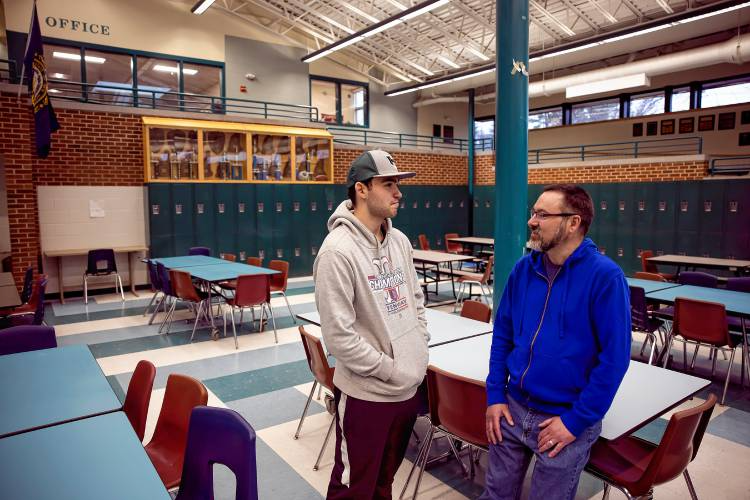By Melissa Proulx, Staff Writer

Students work on houses in New Orleans where Prof. William Ross brings his American studies class each spring. The class spends spring break volunteering in NOLA.
For the last decade, William Ross, a special collections librarian and professor of AMST444B-H01: “New Orleans: Place, Meaning and Context,” has been inviting his students to explore the many aspects of the city he loves.
“There’s a lot more to New Orleans that Bourbon Street and beads,” Ross said, “and I’m proud that a lot of students who have gone with me on the trip really get it.”
The 400-level American Studies class consists of two main components: the first is the class itself, where students learn about the history and the culture of the well-known Louisiana city. The second is over spring break, where students help to rebuild some of the neighborhoods Hurricane Katrina destroyed in 2005.
Ross estimates that he’s been able to bring about 200 students with him on the trip in the past decade. Though the majority of the students are often ones currently enrolled in the class, others have been past students who come back to be leaders on the trip.
Theresa Conn, a business administration graduate student, was one of them. When she traveled to New Orleans as a sophomore in 2012, Conn returned as a student leader the following year.
“It’s one thing to learn about a subject in a classroom, but to drive 28 hours and be immersed in a culture you’ve heard about for weeks is something else all together,” Conn said. “[Ross] is incredibly knowledgeable about the history of the Crescent City and all the best places to grab a po’boy, catch some jazz music or meet locals.”
Many of the current students were drawn to it because of the volunteer aspect.
“A friend recommended [this class] to me,” said Caroline Quintal, a freshman mechanical engineer major. “Giving back through a class is something you don’t really get the opportunity to do often.”
Others like Krysta Gingue, a freshman political science and international affairs dual major, have found what they’ve learned in the Murkland classroom to be equally as interesting.
“I definitely wanted to see how it was the birthplace of so much and how it’s been able to preserve its individual culture,” Gingue said. “Especially the music and how much they define themselves by it.”
Ross had been in New Orleans the week before Katrina for a conference. That was when he said he really started to love it, causing him to watch with horror as the city was destroyed by the flooding.
“I promised myself that I was going to do what I could to help,” he said. “So the following Spring Break I volunteered and went down with [the Federal Emergency Management Agency].”
After that, he set to work designing the course. Though he had worked with other professors and faculty members to design other courses in the past, this was the first one Ross designed on his own to teach by himself.
“I feel sorry for the first class because I’m sure it was overwhelming,” Ross said, explaining how he tried to include everything he could about New Orleans in his lessons. “My PowerPoint slides were very text heavy as I tried to throw everything at them.”
The course is both a discovery and inquiry course, that also fills requirements as a writing intensive and humanities course. Ross said that the class is usually geared towards freshman and sophomores or those who are trying to check off multiple requirements at once.
That being said, the course is available to all undergrads and does not have any pre-requisites.
Ross said that because of the amount of work that goes into the class each year, through planning the lessons and making all the arrangements for the trip, he plans to keep it as just one section, with up to 20 students for as long as the course runs.
He looks forward to learning with the students and sharing their experiences. Each year, the thing Ross looks forward to the most, besides getting to go back to the city, is reading the journal entries that he has his students write before, during and after the trip.
“I hope they go and learn something about a very flawed but beautiful city,” Ross said. “I’d like to see them learn about history and the culture, and especially about the people. But most of all I want them to learn something new about themselves.”




















